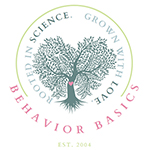ABA Therapy Clinic
ABA Clinic Based Therapy
Contact our main office to determine if this is the most appropriate setting for your child:
Children often experience behavioral challenges in a daycare, preschool, or school setting. In fact, this age group of children experience a suspension rate of THREE times more than students in grades K-12!!!
Disruptions in day school placement can trigger further dysregulation and may trigger more behavioral issues moving forward. Our goal at Behavior Basics is to treat those children in a clinical setting to extinguish those behaviors of concern and teach the necessary behaviors and skills they will require to be behaviorally, socially, and academically successful in group learning settings.
By using research based ABA concepts to help students reach developmental milestones that are expected in the school setting, we are really setting up our clients for success. We can target exactly what a child needs but also allow them to practice and learn concepts that are challenging in a safe and supportive way. Clients that have a trauma history especially crave that safe space to process their feelings and learn to manage their behaviors in a slow and methodical way. We can take what they are doing in the classroom and break it down to manageable steps that can be targeted and improved on. We then see the generalization of these skills into the classroom or other group setting.
One of the reasons that our clients come to therapy is because the way that many people learn is not working for them, whether due to their diagnosis or their learning and exposure history. They require a creative approach, more direct teaching and exposure. This may not be possible in most typical group settings due to the high demands and large class sizes that are placed on teachers or group facilitators, however this is possible in a clinic setting. With one-on-one support we can create programming, take data, and see progress. Since we know that our clients need to be exposed to learning opportunities in a variety of ways, we can expand our reach to touch on many of the skills that are not usually taught but are usually expected in group settings.
Some of the skills that we work on in group responding are attending to an instructor/therapist, raising your hand, putting items on the board, sitting still and quiet, transitioning from rug to table, and waiting your turn. That is just to name a few! There are endless skills that are expected of our children as they approach school age and our group responding program can support them along the way.
The final step in this process is to guide the child to transition back to a typical group day setting and fade the therapeutic support appropriately to ensure success across environments
Jelly fish room
Octopus room
Clinic turtle room
Sea horse room
Fish room
Turtle room
[/segment]
